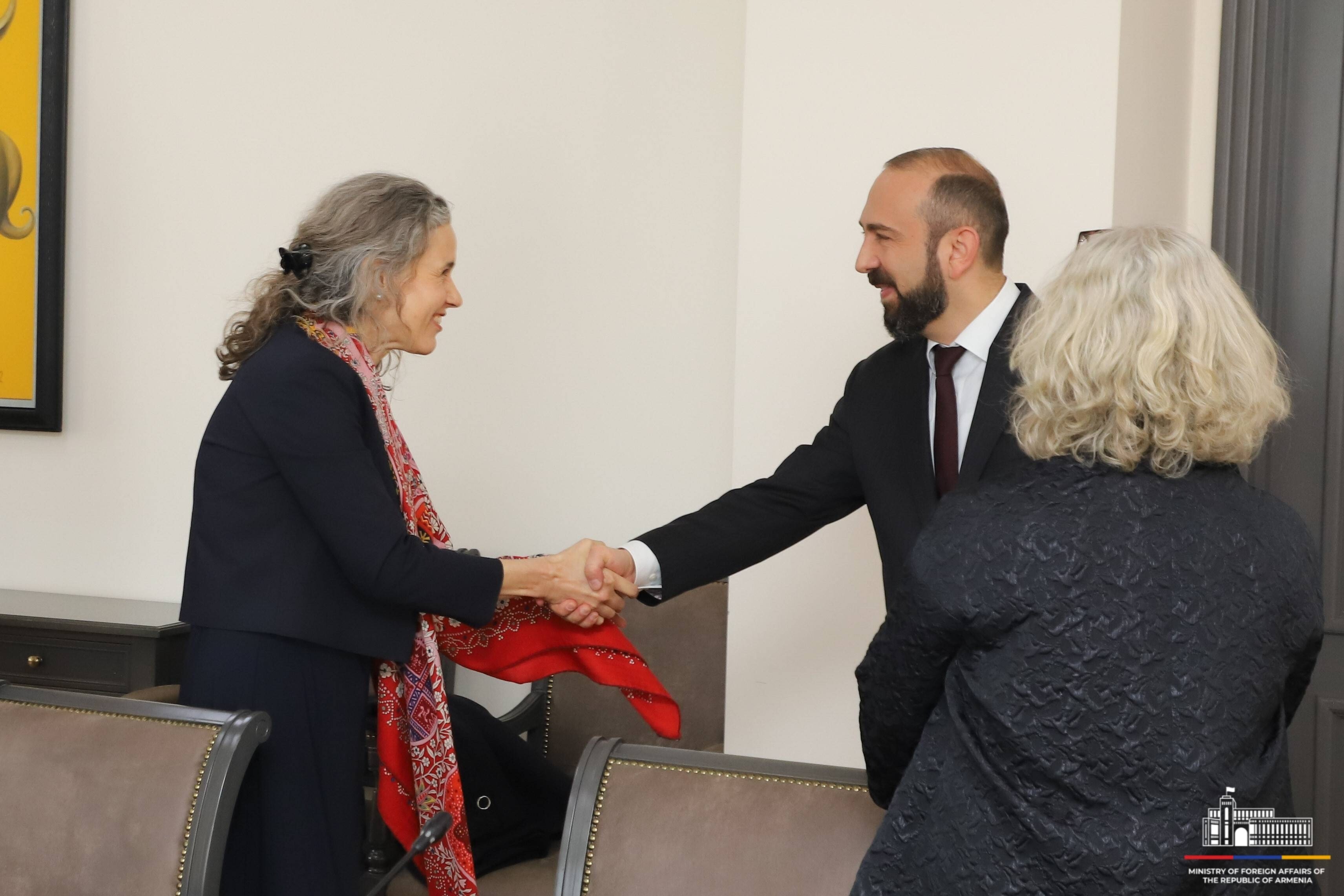
Foreign Minister Mirzoyan Discusses Regional Issues with EU Representative
In recent developments, Armenia’s Foreign Minister, Ararat Mirzoyan, engaged in important discussions with Toivo Klaar, the European Union's Special Representative for the South Caucasus and the crisis in Georgia. These discussions are a continuation of ongoing efforts to address the complex geopolitical landscape of the region. As the South Caucasus continues to face multifaceted challenges, these negotiations have become increasingly pivotal.
Context of the Discussion
The dialogue between Minister Mirzoyan and EU Representative Klaar comes at a crucial juncture. The South Caucasus region is currently marked by tensions and instability, largely due to unresolved territorial disputes and political friction among neighboring states. The European Union has been actively involved in promoting peace and stability in the area, offering mediation and support to the conflicting parties.
Regional Significance
The importance of these discussions extends beyond Armenia's borders. The South Caucasus is strategically significant, both geographically and politically. It serves as a critical corridor for energy resources, connecting Eastern Europe with Central Asia. Hence, regional stability—or the lack thereof—can heavily impact energy supplies to much of Europe.
Key Points of the Meeting
During their meeting, Mirzoyan and Klaar delved into several pressing issues. They explored political, social, and economic challenges facing the region. High on their agenda was the urgent need for a peaceful resolution to the Nagorno-Karabakh conflict. Both sides emphasized the importance of dialogue and diplomatic avenues in resolving this long-standing issue.
Emphasizing Diplomatic Solutions
As part of the conversation, Minister Mirzoyan reaffirmed Armenia’s commitment to seeking diplomatic solutions for regional conflicts. He stressed the importance of international cooperation and the valuable role the EU can play in facilitating meaningful discussions between adversaries. Klaar, representing the EU, reiterated his commitment to supporting peace initiatives.
Humanitarian Concerns
Additionally, the meeting highlighted humanitarian issues resulting from regional instability. Displacement of populations and humanitarian aid delivery remain critical concerns. The EU, according to Klaar, is dedicated to increasing humanitarian assistance to affected areas, prioritizing the safety and well-being of civilians caught in the crossfire of regional disputes.
The Role of the European Union
The European Union is considered a key player in the South Caucasus, striving to be an arbiter of peace and stability. Its involvement in Armenia and the surrounding regions reflects its broader strategy to foster stability in its eastern neighborhood. As such, the EU has invested in various initiatives aimed at reducing regional tensions and promoting sustainable development.
Mediating Peace
The EU’s efforts include initiating peace talks, supporting ceasefire agreements, and monitoring human rights situations. By maintaining close ties with local governments and civil societies, the EU strives to address the root causes of conflict and promote comprehensive solutions. It continues to leverage its diplomatic influence to encourage constructive engagement between Armenia and its neighbors.
Fostering Economic Growth
Beyond peacekeeping, the EU also seeks to promote economic prosperity in the region. Collaborative projects focus on economic development, energy security, and infrastructural advancements. Boosting Armenia's economic resilience is seen as a pathway to greater stability, enabling it to better navigate the turbulent waters of regional politics.
Looking Ahead: Impact of the Meeting
The dialogue between Minister Mirzoyan and EU Representative Klaar signifies not only a commitment to addressing immediate issues but also a hope for long-term peace and stability. Such engagements are instrumental in patching up relations and building trust among countries in the South Caucasus.
Future Prospects
Moving forward, the outcomes of this meeting could set the tone for further cooperation between Armenia and the European Union. Success in these diplomatic endeavors hinges on continued engagement, open communication channels, and a steadfast commitment to resolving conflicts through peaceful means.
Challenges and Opportunities
Although regional challenges persist, the potential for constructive resolutions remains. The EU’s proactive involvement presents both challenges and opportunities for Armenia. While diplomacy can be slow and incremental, even small advancements can have significant, positive ramifications.
Conclusion
The recent talks between Armenian Foreign Minister Mirzoyan and EU Representative Klaar underscore a shared vision for a stable, peaceful South Caucasus. This collaborative approach champions diplomacy as the primary mechanism for resolving disputes, enhancing stability, and boosting development within the region.
As the global landscape evolves, it remains crucial for Armenia to engage with international partners, such as the European Union, to navigate complex geopolitical dynamics. The world will closely watch these endeavors, hopeful that diplomacy will prevail to ensure a brighter, more secure future for the people of Armenia and its neighboring countries.


